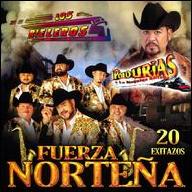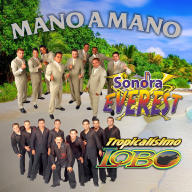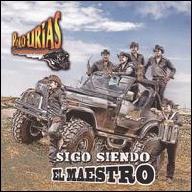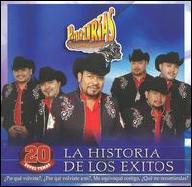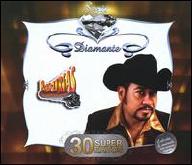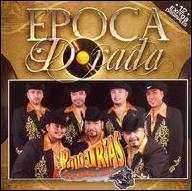This new band became his vehicle for expression and they established a fan base early on with exciting live shows and active engagement with audiences. The band's second album, No Existen Barreras, was produced by Rieleros del Norte's Daniel Esquivel, and netted three hit radio singles in covers of Marc Antonio Solis' "Cuando Me Viste con Otra," "Daniel Ponce de León" by Saúl Loya, and "Ya Dime," by the author Keith Nieto. Three more albums filled out the decade, the most important of which was 1998's Corridos.
In the 21st century, Máquina Norteña's hard touring paid off and their recordings began to hit the charts. More than a dozen of their singles landed in Latin Airplay, Regional Mexican and Hot Latin Songs charts -- all of them in the Top 40 -- and their albums sold as well. But it was the live shows featuring Urias' singing and dynamic stage presence that drew crowds.
The longstanding attraction for Urias and his band is that the corridos he chooses are hardcore: they are traditional -- not narcocorridos. Likewise, the conjunto and mariachi styles he offers are free of trendy pop revisionism. His band's songs, whether covers, arrangements of folk songs, or originals, all celebrate regional cultures (Chihuahua's in particular; northern Mexico's in general) and life situations that include everything from hardship and joy to romance and historical legends. Urias is a singer whose appeal extends beyond even the band's, as his popular duet and split recordings with his nephew Adolfo Urias and his band Su Lobo Norteño attest. He released Duelo Norteño in 2017. ~ Drago Bonacich, Rovi


